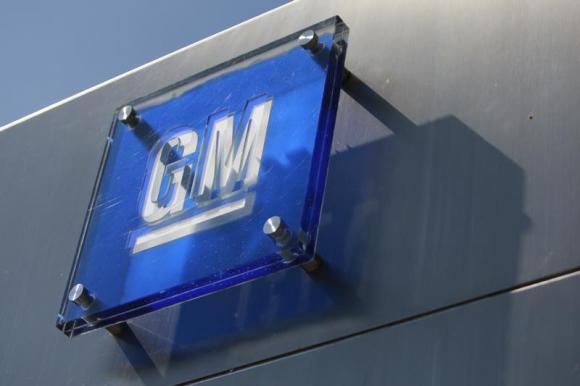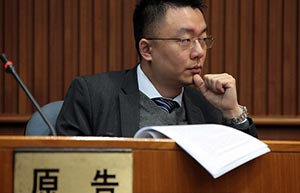US probes GM recall linked to 13 deaths
(Agencies) Updated: 2014-02-28 10:18
 |
| The General Motors logo is seen outside its headquarters at the Renaissance Center in Detroit, Michigan, US, Aug 25, 2009. [Photo / Agencies] |
US safety regulators have opened an investigation into whether General Motors Co reacted fast enough in its recall of more than 1.6 million cars over an ignition-switch defect linked to 13 deaths in crashes.
The issue could prove costly to GM as the automaker faces a potential fine from the US National Highway Traffic Safety Administration, the cost of replacing the ignition switches in question and the possibility of costly lawsuits.
"The National Highway Traffic Safety Administration has opened an investigation into the timeliness of General Motors' recall of faulty ignition switches to determine whether GM properly followed the legal processes and requirements for reporting recalls," the safety agency said in a statement released on Wednesday.
GM, which went through a bankruptcy restructuring in 2009, could face a maximum fine of $35 million if it failed to notify NHTSA within five days of a recall after learning of a vehicle safety defect.
The company did not say how much the recall would cost, but LMC Automotive analyst Jeff Schuster said the biggest cost to the automaker could result from the flurry of lawsuits likely to be triggered by the defect and the company's actions.
Toyota Motor Corp last year paid more than $1 billion to resolve economic-loss claims related to the recall of millions of vehicles for unintended acceleration. The Japanese automaker is still trying to settle personal-injury lawsuits.
GM's recall was to correct a condition that may allow the engine and other components, including front airbags, to be unintentionally turned off.
GM previously said the weight on the key ring, road conditions or some other jarring event may cause the ignition switch to move out of the "run" position, turning off the engine and most of the car's electrical components.
NHTSA urged owners to follow GM's recommendation to "use only the ignition key with nothing else on the key ring" when operating the vehicle and seek the repair as soon as replacement parts become available. GM said the initial replacement parts will be available in early April.
NHTSA said it will monitor the recall and take additional action as needed. Up to now, Toyota Motor Corp and Ford Motor Co have paid the largest fines of more than $17 million to NHTSA for delaying recalls.
On Tuesday GM more than doubled its recall related to the issue, saying it was "deeply sorry" and that the company was reviewing its recall process, acknowledging it was not as "robust as it should have been.
GM said then that it was aware of 31 reported incidents, including 13 front-seat fatalities, involving frontal crashes in which the condition may have caused or contributed to the front airbags not deploying.
On Thursday, GM Chief Executive Mary Barra declined to address the issue at an event in Boston. But the company said in a statement: "We deeply regret the events that led to the recall and this investigation. As our detailed chronology indicates, we intend to fully cooperate with NHTSA and we welcome the opportunity to help the agency have a full understanding of the facts."
GM previously said all the crashes occurred off-road and at high speeds, where the probability of serious or fatal injuries was high regardless of airbag deployment. Failure to wear seat belts and alcohol use also were factors in some cases, the company said.
Clarence Ditlow, executive director of the Center for Auto Safety, a Washington advocacy group that pushed for the wider recall, said the whole recall system is broken. "GM doesn't get a get-out-of-jail-free card just because NHTSA did a sloppy job," he said.
- Premier Li meets with Timor Leste's Prime Minister
- China encourages development of private healthcare
- Lufthansa Cargo strengthens its presence in China
- China battles for rags-to-riches stories
- Cars, models at 10th Manila Intl Auto Show
- Jack Ma to acquire 20% of Wasu Media
- XP's demise helps Chinese IT developers
- GM planning lower-priced version of 2016 Chevy Volt

















